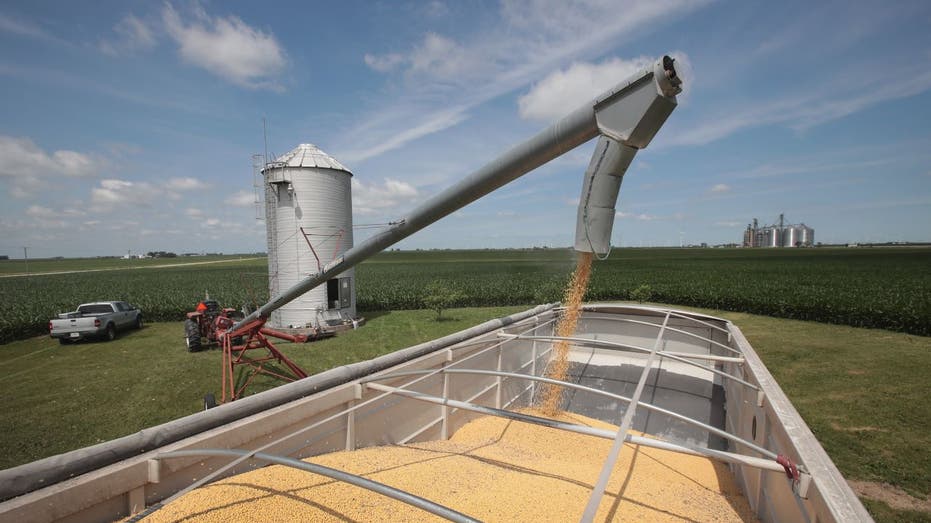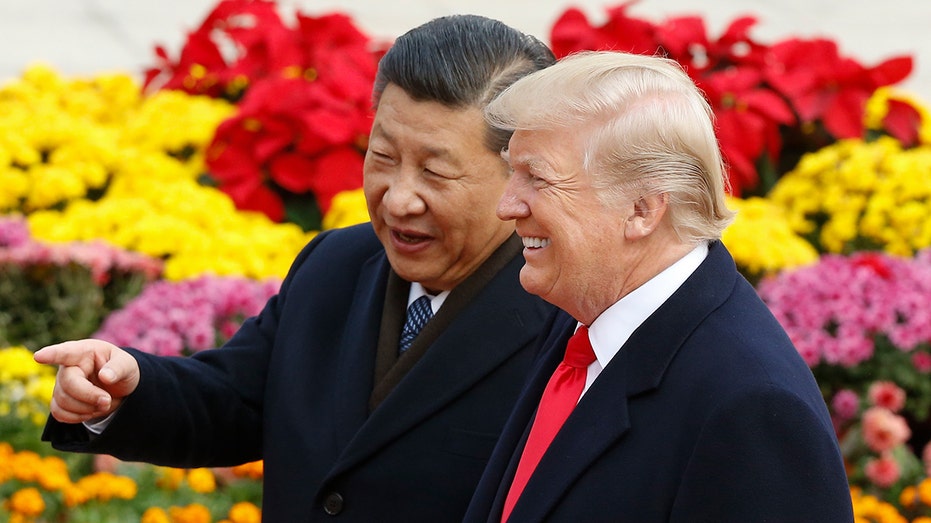

President Donald Trump accused China of waging an "economically hostile" act by cutting back soybean purchases and said he’s considering ending U.S. trade with China involving cooking oil and other goods in response.
"I believe that China purposefully not buying our Soybeans, and causing difficulty for our Soybean Farmers, is an Economically Hostile Act," Trump wrote Tuesday on Truth Social. "We are considering terminating business with China having to do with Cooking Oil, and other elements of Trade, as retribution.
"As an example, we can easily produce Cooking Oil ourselves, we don’t need to purchase it from China," he added.
Trump’s comments come as the ongoing trade dispute with China continues to create serious headwinds for American farmers, as soybean producers lose access to the world’s largest market for the commodity.

Soybeans are loaded onto a truck before taking them to a grain elevator in Dwight, Ill. (Scott Olson/Getty Images / Getty Images)
China stopped purchasing American soybeans in the spring, in retaliation to the Trump administration’s tariffs. The move appeared to be a means for China as it looked to gain leverage in trade talks by shifting its purchases away from U.S. producers to countries like Brazil and Argentina.
Data from the American Soybean Association (ASA) shows that China is the world’s leading importer of soybeans, bringing in 61% of the world’s traded soybean supplies over the last five marketing years.
The ASA said the U.S. has historically served as a primary supplier of soybeans for China, exporting an average of 28% of the farmers’ crop to China before the 2018 trade war.

Farmers across Illinois are storing more soybeans this season, waiting for prices to recover as exports remain low. (Olivianna Calmes / Fox News)
That number dropped to a low of 11% in the 2018-19 crop year, though recovered during the pandemic and reached 31% in 2020-21. But from 2023-24, the percentage dropped again, this time to 22%.
"We rely on trade with other countries, specifically China, to buy our soybeans," Brad Arnold, a multigenerational soybean farmer in southwestern Missouri, told FOX Business in an interview earlier this month.
He said that China's halt on U.S. soybean purchases "has huge impacts on our business and our bottom line."

Chinese President Xi Jinping and President Donald Trump in 2017 in Beijing. (Thomas Peter-Pool/Getty Images / Getty Images)
Chief economist for the ASA, Scott Gerlt, said in an interview with FOX Business that soybean farmers will be in need of trade aid soon given the timing of the harvest.
Gerlt noted that while older farmers who may own their land or equipment may not be in as much need, younger farmers who have to rent the land they farm and have operating notes are facing a lot more risk.
"Having dependable trading partners is better in the long run. Trade aid can get farmers through short-term, help keep them in business and get to the next year," he said. "But the problem is, if we're not in the markets now, that's just a further signal to South America to keep expanding."
Gerlt added that South American soybean producers in Argentina and Brazil are likely to take advantage of China's demand for soybeans amid the country's trade dispute with the U.S., which could have longer-term impacts on American farmers.
On Tuesday, FOX Business’ Edward Lawrence asked Trump if he thought China was trying to draw a wedge between the U.S. and Argentina by purchasing soybeans from Argentina and not from the U.S. Farmers.
"I would say so," Trump said. "China likes to draw wedges."
"I mean, I guess that’s natural, it’s China, and it’s natural," Trump later said. "But, it’s not going to mean anything in the end."
FOX Business’ Eric Revell contributed to this report.
